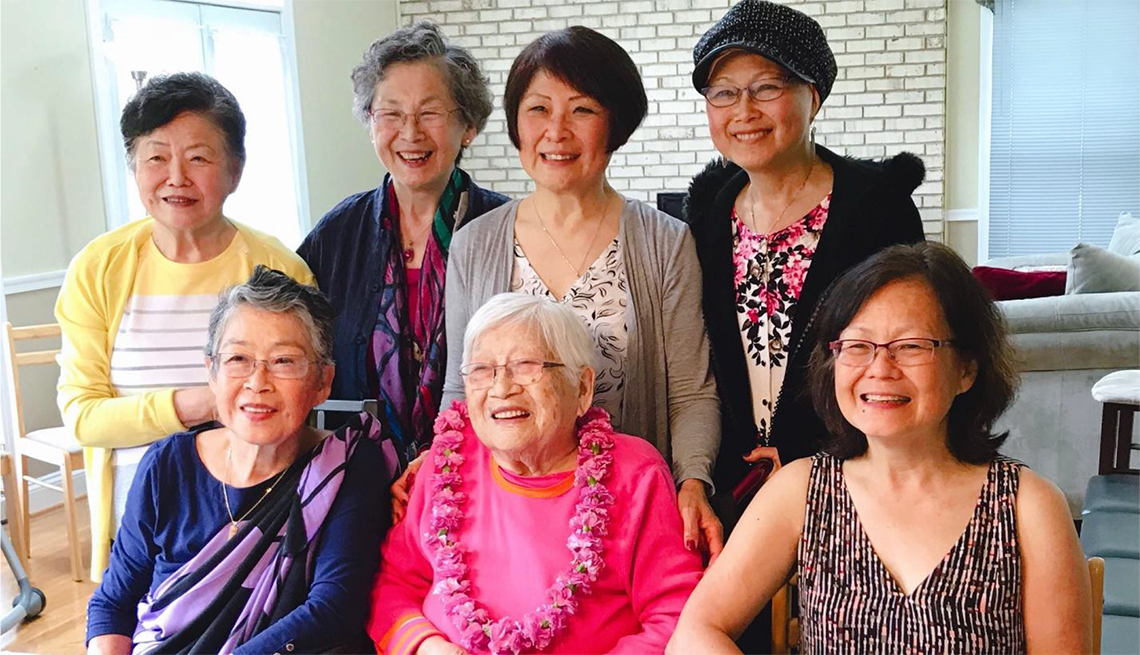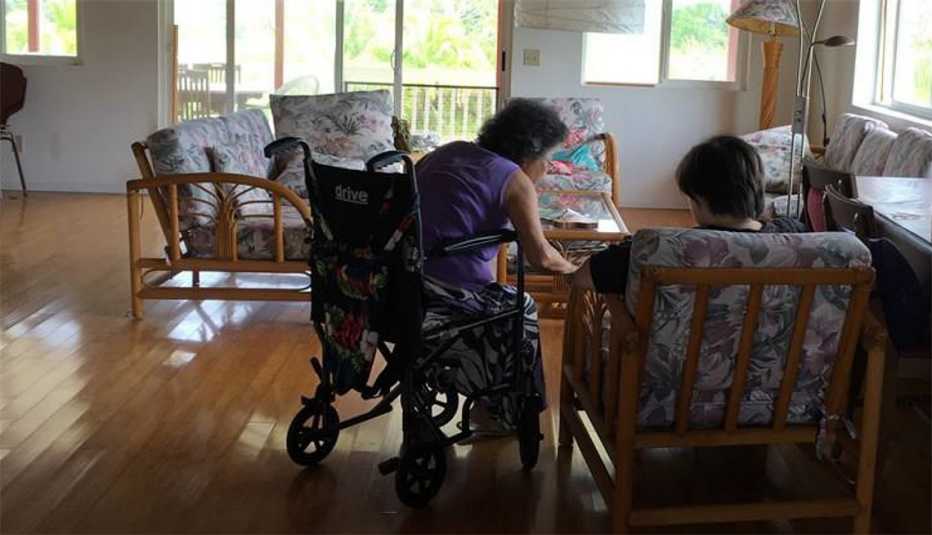AARP Hearing Center
My mother almost accidentally complimented my cooking when she was sick.
"Kai-Hwa's youfan is very gggoo. … OK."
She turned that sentence around on half a syllable, but my daughter Mango and I both heard it.
That was the first and only time she ever almost complimented my cooking.
She once told my children, “No one could possibly be such a terrible cook; she must be doing it on purpose."
Note: In real life I am not a terrible cook. I am actually a very good cook. I even teach Chinese cooking classes at the community college.
But my mom is better.
Like that half-syllable twist, our roles are shifting too quickly.
Whereas my friends and I used to stand around at children's birthday parties and soccer games talking about diapers and day care, now we are, well, standing around at high school graduation parties and talking about them again.
And we complain about how our parents are so feisty and strong-willed (shout-out to those of us with immigrant and refugee parents) that they do not listen to any of us, because — what do we know? — we are just children.
For almost as long as I have had children, I have been counting down the days until my youngest graduates from high school so that I will finally be free to move wherever I like. I live in a small college town, which is nice, with good schools, but very quiet. Finally, my three daughters have graduated from high school and gone off to college, and I have only one child left at home, my 15-year-old son, whom we all call Little Brother.



































































